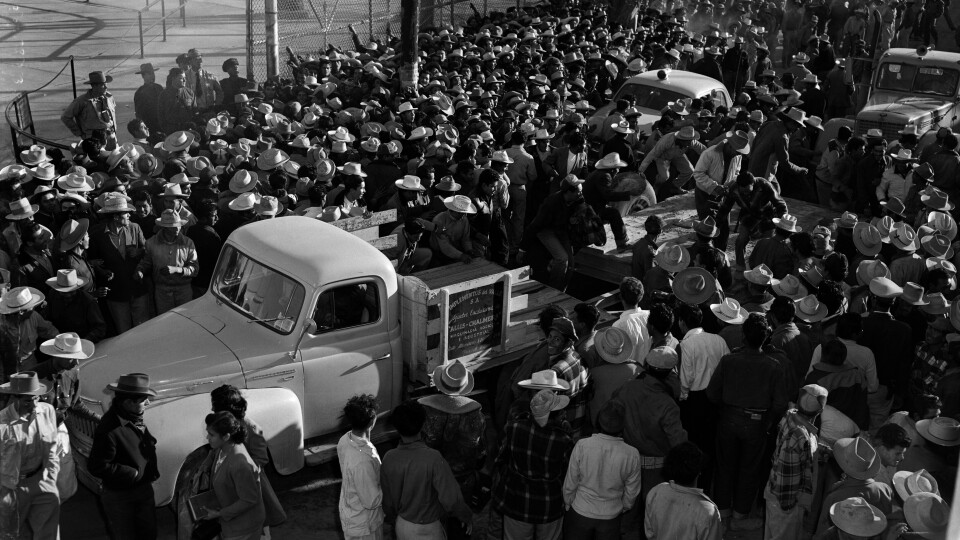Today on a special edition of Lake Effect, we explore the reality of immigration in Wisconsin. We discuss the state’s immigrant history, and our perception of Latino communities. We look at how losing migrant workers would affect key Wisconsin industries, and how the deportation process currently works. Plus, we explore what the messaging about a mass deportation does to immigrant communities.
Los Angeles Times
/
Wikimedia Commons
Although Latino people have lived in Wisconsin nearly as long as it’s been a state, historian Sergio Gonzalez says Latino communities are often seen as being perpetual outsiders. We explore how this perception has impacted views on immigration and the evolution of Wisconsin communities.
Susan Bence
/
WUWM
Without immigrant labor, Wisconsin's agricultural economy would collapse. Despite this dependance on immigrant labor, some will vote to deport them anyway.
Brad
/
Stock Adobe
Former President Donald Trump has vowed to deport as many as 20 million people, despite there only being a suspected 11.7 million undocumented immigrants in the country.
Chuck Quirmbach
/
WUWM
Christine Neumann-Ortiz, executive director of Voces de la Frontera Action, says allowing migrants to get driver's licenses would help limit deportations and tamp down on fear.






